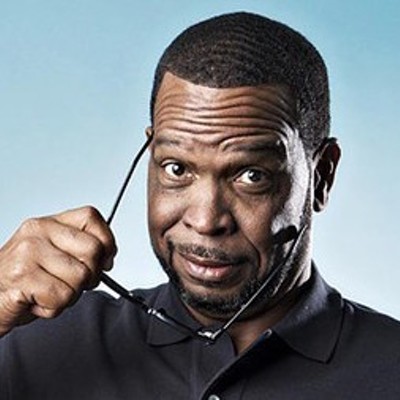Uncle Luke, the man whose booty-shaking madness once made the U.S. Supreme Court stand up for free speech, gets as nasty as he wants to be for Miami New Times. This week, Luke explains how the criminal justice system destroys young black men in Miami-Dade County.
A couple of major news organizations, CBS and Sports Illustrated, recently concluded a six-month investigation unearthing the criminal backgrounds of thousands of division I college football players. The point was to show college football programs don't do a good job sniffing out skeletons in a kid's closet.
Among the players the report cited is a young man whom I used to coach at
Miami Central Senior High. His name is Antwan Darling, and he's now a freshman
at the University of Cincinnati.
I had a conversation with his mother, who is a full-time postal worker,
last week. She was very upset about the tone of the CBS/Sports
Illustrated expose. She is thinking about suing for slander. I can
understand why. It is easy to go out and publicize how many times a
player got arrested to make the case he doesn't deserve a scholarship.
After all, the sensationalism is going to get people to read the
magazine and tune into the network's news programs. Had the reporters
done a little more research, they would have found out that he was never
arrested in 2006 for firing a gun. They got that wrong.
The report also made hay about Darling going to an intervention program
on a burglary charge. Again, if CBS/Sports Illustrated had done some
digging they would have found that the police did not find any of his
fingerprints at the scene and that the footprint inside the home was a
size 7. Darling wears a size 11. The only reason he opted for the
intervention program was to put the whole mess behind him. Had he fought
the charges, he would have been on house arrest, and would not be able
to travel anywhere. Had he waited the six months to go to trial, the
school would have rescinded its scholarship offer, and he would have no
college to go to. He was stuck between a rock and a hard place. So he
took the plea deal so he could go the University of Cincinnati.
Now CBS and Sports Illustrated have the NCAA looking at how to keep inner city schools
from getting into college. What would have happened if Darling was
turned down for a scholarship? Who is going to hire him after he puts
down that he was arrested but was never convicted? Where ever he
applies, they will tell him, "hell nah." What is he left with? His
homeboys on the corner selling weed and coke who remind him that "no
cracker is going to give him a job."
But you don't read about that in the CBS/Sports Illustrated piece. This
is why I am trying to explain to people why African Americans are afraid
of the criminal justice system. The judicial process is set up to
disenfranchise African Americans, a majority of whom can't afford their
own lawyer and take guilty pleas to get on with their lives. It's why
elected officials leave ghettos looking like Beirut. It's why
individuals with an arrest but no conviction on their record have a hard
time getting legitimate jobs in corporate America.
And thus the vicious cycle continues. To stop it, we as a society have
to change our attitude that you are guilty even when you are found
innocent.
Follow Miami New Times on Facebook and Twitter @MiamiNewTimes.











